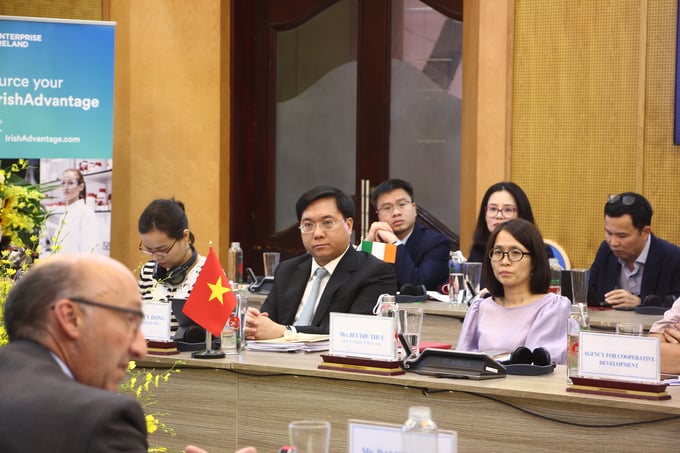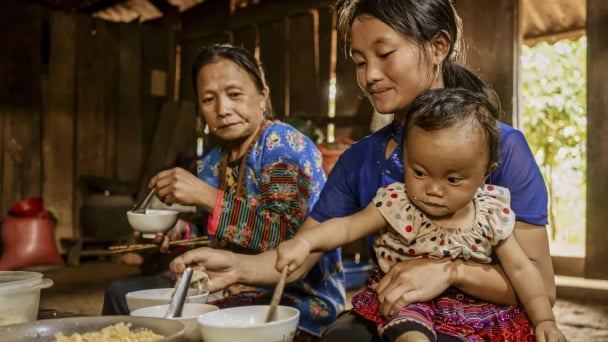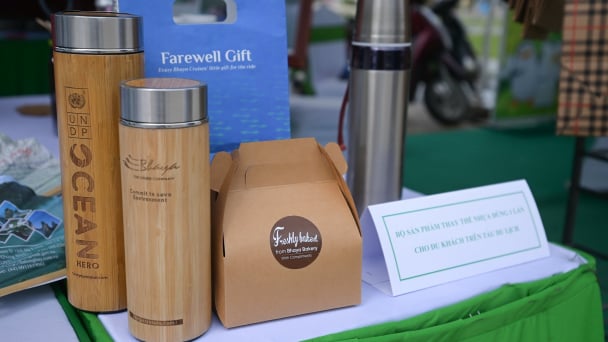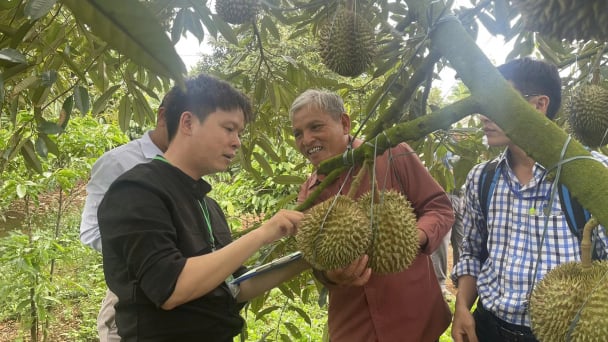June 2, 2025 | 00:41 GMT +7
June 2, 2025 | 00:41 GMT +7
Hotline: 0913.378.918
June 2, 2025 | 00:41 GMT +7
Hotline: 0913.378.918
On September 8, the Department of Agriculture, Food and the Marine of Ireland organized "Ireland-Vietnam Agriculture Conference – The Adoption of Agritech 4.0" in collaboration with the Ministry of Planning and Investment's Enterprise Development Agency, and other relevant ministries and departments.
The conference enabled for the exchange of experiences and the promotion of agricultural cooperation based on modernization, high yield, efficiency, and sustainability, as well as high levels of competitiveness.

Deputy Minister of Planning and Investment Tran Duy Dong said that promoting further cooperation relationships to develop the agricultural sector is becoming increasingly necessary. Photo: Linh Linh.
Deputy Minister of Planning and Investment Tran Duy Dong remarked during the conference that Vietnam and Ireland have a long history of sustainable cooperation. Agriculture and food processing are the areas included in Irish Development Experience's framework for collaboration sharing between Vietnamese agencies and Irish partners from 2017 to 2020.
"Promoting further cooperation relations to develop the agricultural industry as well as promoting business links between the two countries is becoming increasingly essential. This is especially true in light of the fact that each country considers development to be tied to technology and that sustainable technology is a top priority," said Deputy Minister Tran Duy Dong.
In the process of transitioning to efficient and sustainable agriculture, Vietnam's agricultural sector still faces many difficulties and challenges, such as limitations on mechanization in production, difficulties in breeds and livestock production, an unsustainable consumption market, and inadequate human resource capacity.

Overview of "Ireland-Vietnam Agriculture Conference – The Adoption of Agritech 4.0".
Meanwhile, the Irish food and agriculture industry is one of the most powerful in the world. The Ministry of Planning and Investment anticipated that following the conference, Ireland would assist Vietnam in sharing knowledge on agricultural development, focusing on the livestock sector; create opportunities for Vietnamese agricultural enterprises to access modern Irish 4.0 technology and research works; and share lessons on sustainable development, thereby promoting the export of Vietnamese agricultural products to regional and international markets.
Since the EU-Vietnam Free Trade Agreement (EVFTA) went into force, Mr. Martin Heydon, Ireland's Minister of Agriculture, Food, and the Marine stated that the two countries may explore the possibilities for collaboration and grow the agriculture, food, and processed goods industries.
In its 10-year strategy to develop the agricultural and food sector, Ireland intends to become the world's leading provider of high-quality food products, with the manufacturing process focused on the relationship between food, health, nutrition, and environmental considerations.
Investing in research and innovation is a crucial factor in achieving this objective. This is also Ireland's top priority for the agriculture sector's sustainable growth, said Mr. Heydon, adding that research development and innovation activities play a crucial role in resolving problems and uncovering new opportunities.
In addition, he emphasized that the Irish government is eager to stimulate investment and collaborate with Vietnam in the use of cutting-edge technology to construct an agricultural that can adapt to climate change and minimize greenhouse gas emissions.
Vietnam's livestock sector is characterized by a wide variety of livestock species and breeding methods, as well as a vast scale and dense population of herds. The livestock industry's 2030 livestock development strategy aims to increase both output and herd size.
However, according to Dr. Nguyen Xuan Duong, Vice-Chairman of the Vietnam Livestock Association, the livestock sector still confronts several obstacles and challenges, including a lack of synchronization in the issue of livestock technology. While cow breeding and milk processing are extremely technologically advanced, accounting for about 60 percent of the entire dairy herd, only around 30 percent of the overall herd of pigs and chickens are grown industrially using contemporary technology. Only around 20% of the market is now invested in modern, synchronized technology for slaughtering and processing animal products.
To overcome technological limitations, the representative of the Vietnam Livestock Association proposed numerous urgent solutions, such as technological innovation solutions in the direction of applying high, automatic, and biotechnological technologies in animal husbandry, and developing livestock production based on the model of biosafety, recirculating, and environmentally friendly livestock.

Technology in livestock production is still lacking in synchronization. Photo: TL.
Dr. Pham Van Gioi, Institute of Livestock Production, Ministry of Agriculture and Rural Development, expressed to a representative of the Vietnam Livestock Association that, although barn technology, milking technology, and environmental treatment technology are applied quite effectively, the application of high technology in the field of cow husbandry in Vietnam still faces obstacles such as the small-scale farming model.
Dr. Pham Van Gioi proposed that, in order to increase the application of high technology in cow farming, the livestock industry should strengthen supervision of livestock law enforcement, support the shift of small-scale livestock production to a centralized, perfect cow husbandry management system in the direction of organic, biosecurity, promoting the formation of the chain link, monitoring and supporting the chain link, and timely supplementing new technological innovations.
Through the conference, the state management agencies responsible for agriculture, specialists, and business communities of the two countries were able to exchange ideas, share experiences, and suggest a variety of future cooperative initiatives to boost the growth of agriculture in both nations.
Translated by Dieu Linh

(VAN) 30 experts in health, agriculture and environment participated in a consultation workshop to inform the development of a methodological framework aimed at supporting Vietnam’s transition to a sustainable food system.

(VAN) Over the past five years, Quang Ninh Province has vigorously and synchronously implemented the ‘Say No to Plastic Waste’ campaign, yielding positive outcomes in advancing sustainable tourism.

(VAN) The prevention of plastic pollution necessitates collaboration among governments, businesses, and citizens. Today's little things contribute to a future free of plastic.

(VAN) This was the directive given by Deputy Minister Phung Duc Tien during a meeting with the Department of Livestock Production and Animal Health, and relevant stakeholders to prevent and control African swine fever.

(VAN) For the durian industry to succeed, the value chain must fulfill its commitments to the government, the community, and international partners.

(VAN) Vaccinating juvenile pangasius helps reduce disease, antibiotic use, and farming costs, increasing profits for export-oriented farmers in An Giang.

(VAN) Due to a limited supply of workforce and competitive recruitment requirements, businesses struggle to retain talented veterinary human resources.